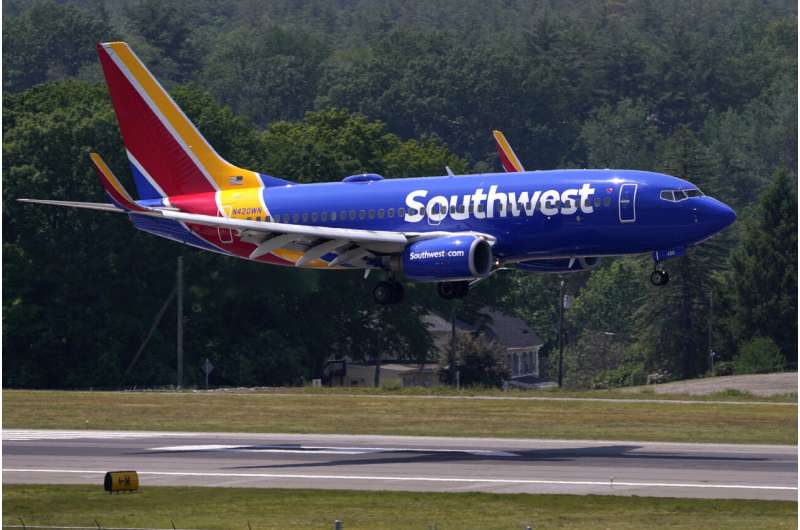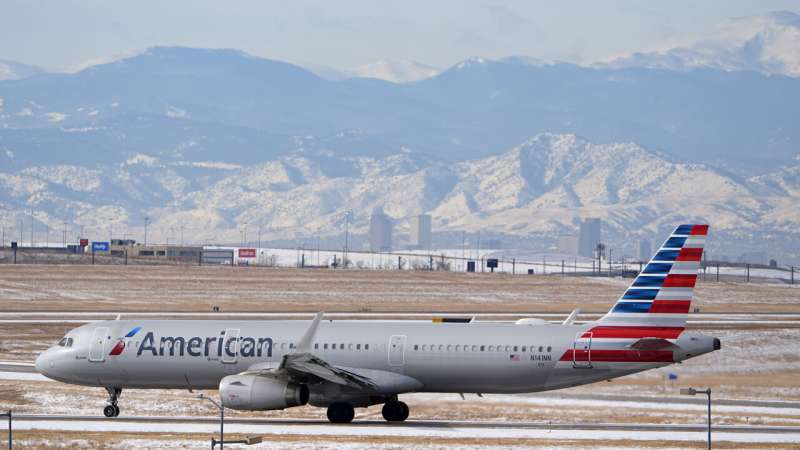
Alaska Airlines said Thursday that the grounding of its Boeing 737 Max 9 jetliners will reduce full-year profit by $150 million and slow down the airline's planned growth.
The planes have been grounded since shortly after the midflight blowout of a panel in the side of an Alaska plane over Oregon on Jan. 5.
Federal regulators announced late Wednesday that they approved an inspection process that, if followed by airlines, can allow Max 9s to resume flying. Alaska hopes to begin doing that on Friday and gradually bring back all 65 of its Max 9s by early February.
The airline said it has started a "thorough review of Boeing's production quality and control systems."
Alaska detailed the financial fallout from the Boeing safety issue while reporting a $2 million loss in the fourth quarter. The Seattle-based carrier forecast full-year 2024 adjusted earnings of $3 to $5 per share.
Earlier this week, United Airlines—the only U.S. carrier besides Alaska to operate the Max 9—said it expects to lose money in the first quarter because of the grounding.
Separately on Thursday, Southwest Airlines said that it will receive six fewer new planes than it expected this year because of ongoing production problems at Boeing.
Southwest has ordered more than 300 Boeing 737 Max 7 jets, the smallest of the Max lineup, but Boeing is already behind schedule in gaining regulatory approval for the plane. That process will likely be pushed back even further by the safety concerns over the Max 9 and Boeing's quality issues.
The CEOs of Alaska and United blasted Boeing earlier this week. American Airlines CEO Robert Isom chimed in on Thursday, calling Boeing's safety issues "unacceptable."
"Boeing needs to get their act together," he said on a call with analysts and reporters. "All of Boeing needs to come together and to get back on the right track."

On the financial side, American saw its profit drop sharply and forecast that it will lose money in the first quarter of 2024. Southwest Airlines reported a fourth-quarter loss. Both carriers are struggling to cover rising labor costs.
American earned $19 million in the fourth quarter, down from $803 million a year earlier. Excluding one-time items, mostly contract-ratification bonuses for pilots, the airline said adjusted profit was 29 cents per share.
Analysts expected American Airlines Group Inc. to earn 11 cents per share, according to a FactSet survey.
Revenue declined 1%, to $13.06 billion, slightly higher than analysts had forecast.
The Fort Worth, Texas-based airline said it expects to lose between 15 cents and 35 cents per share in the first quarter, typically the slowest travel period of the year. However, American forecast that it will earn between $2.25 and $3.25 per share for all of 2024.
Southwest lost $219 million in the fourth quarter, nearly identical to its results in the same quarter a year earlier. Excluding one-time costs, mostly tied to a new contract with pilots, the airline said adjusted earnings were 37 cents per share.
Wall Street expected Southwest Airlines Co. to earn 12 cents per share.
Revenue increased more than 10%, to $6.82 billion, beating analysts' forecast and setting a record for the Dallas-based carrier.
Alaska's $2 million loss compared with a $22 million profit a year earlier. Revenue rose 3%, to $2.55 billion.
In morning trading, shares of American Airlines Group Inc. rose 9%, Alaska Air Group Inc. gained 4%, and Southwest Airlines Co. added 1%, as the stock market rallied on a report of stronger-than-expected economic growth in the fourth quarter.
© 2024 The Associated Press. All rights reserved. This material may not be published, broadcast, rewritten or redistributed without permission.
Citation: Alaska Airlines says the grounding of some Boeing planes will cost the airline $150 million (2024, January 25) retrieved 25 January 2024 from https://techxplore.com/news/2024-01-alaska-airlines-grounding-boeing-planes.html
This document is subject to copyright. Apart from any fair dealing for the purpose of private study or research, no part may be reproduced without the written permission. The content is provided for information purposes only.
